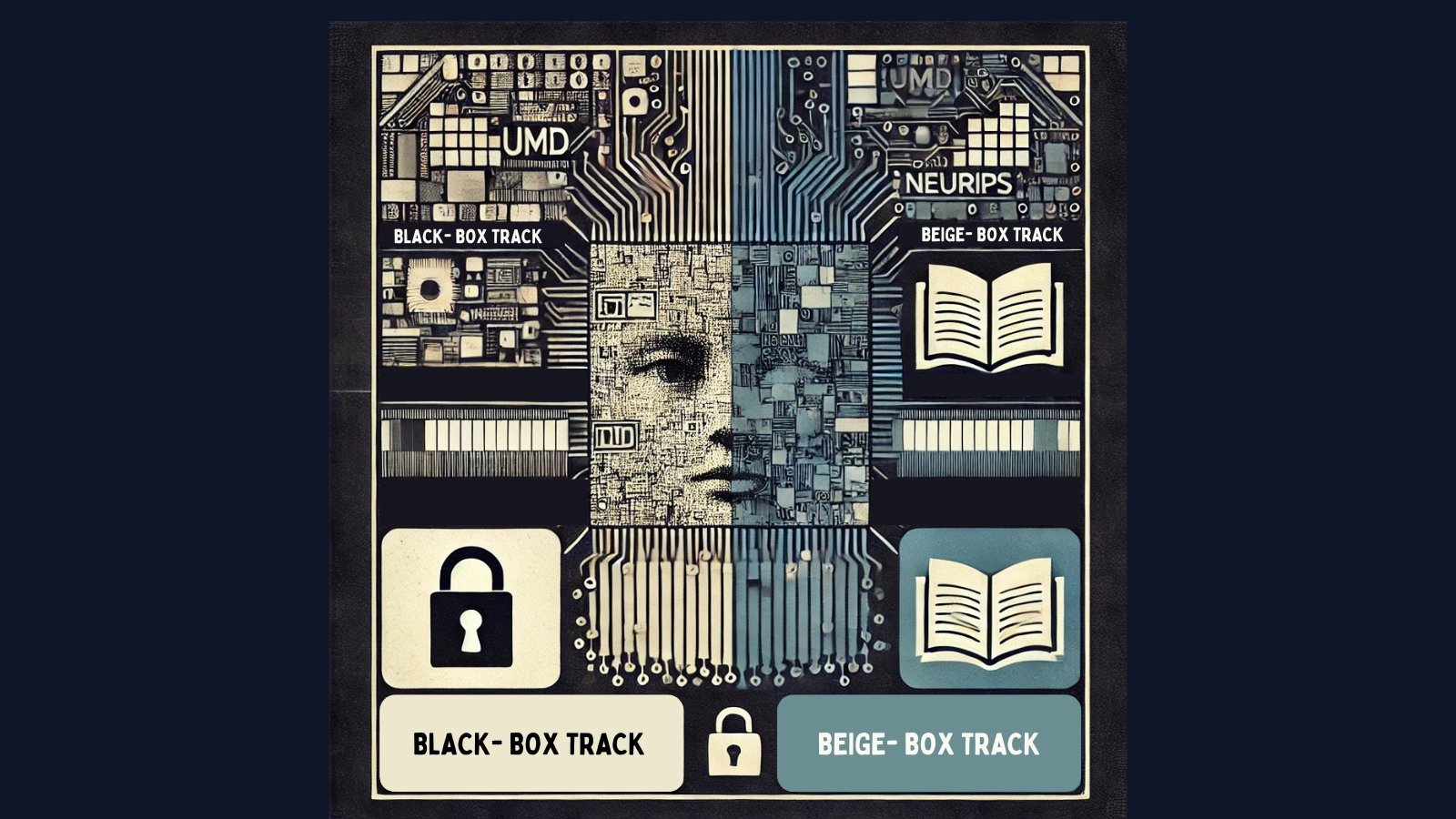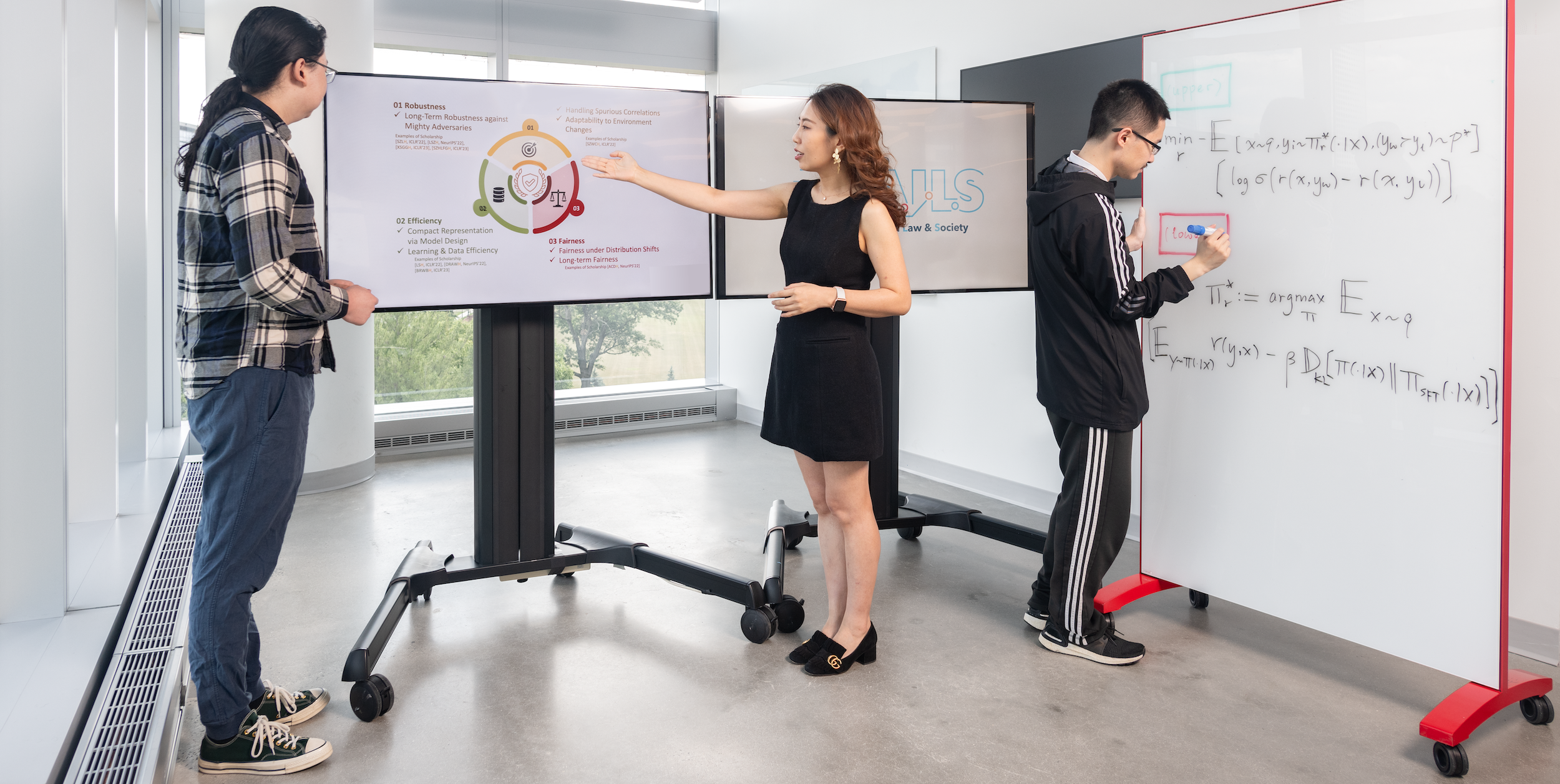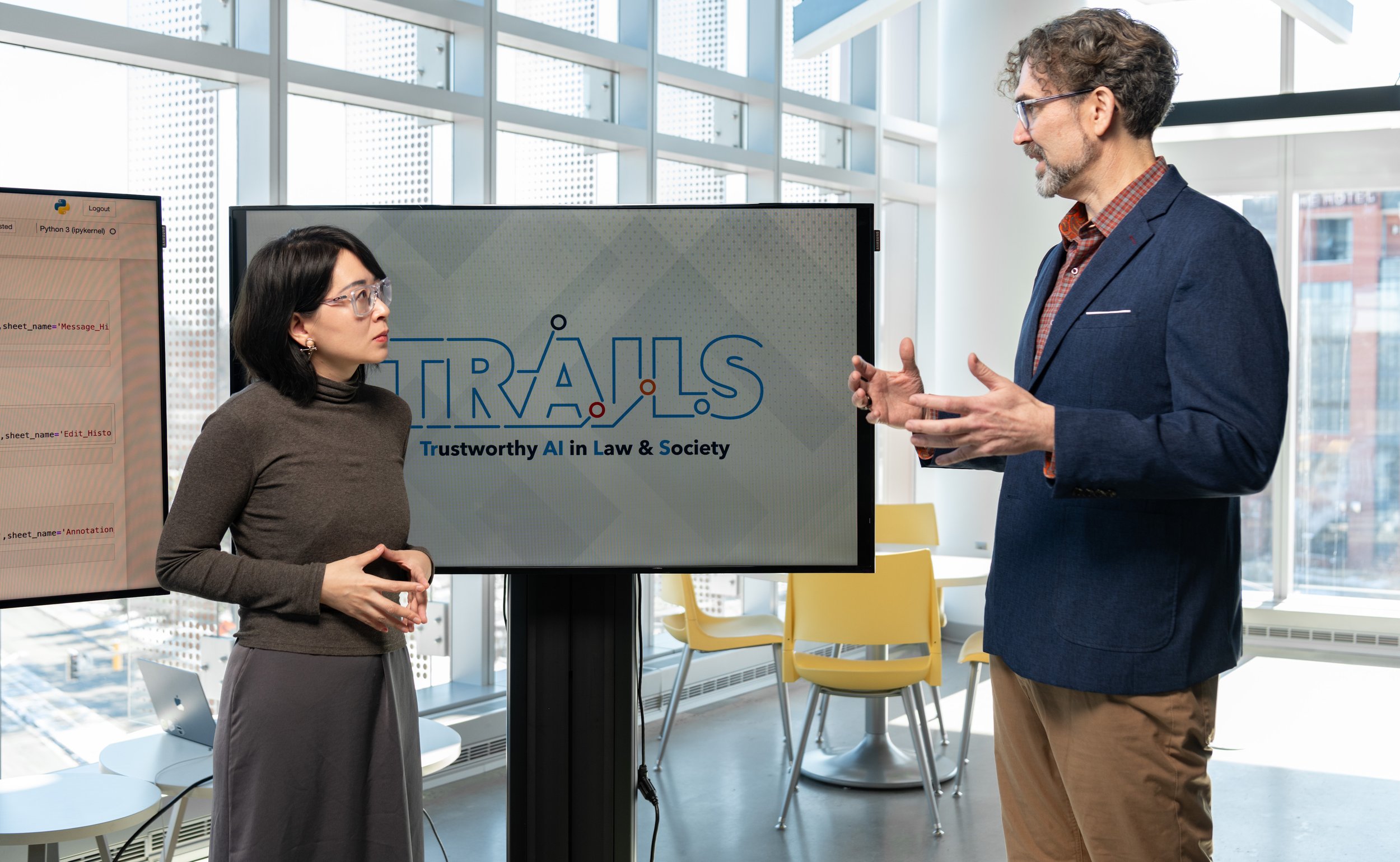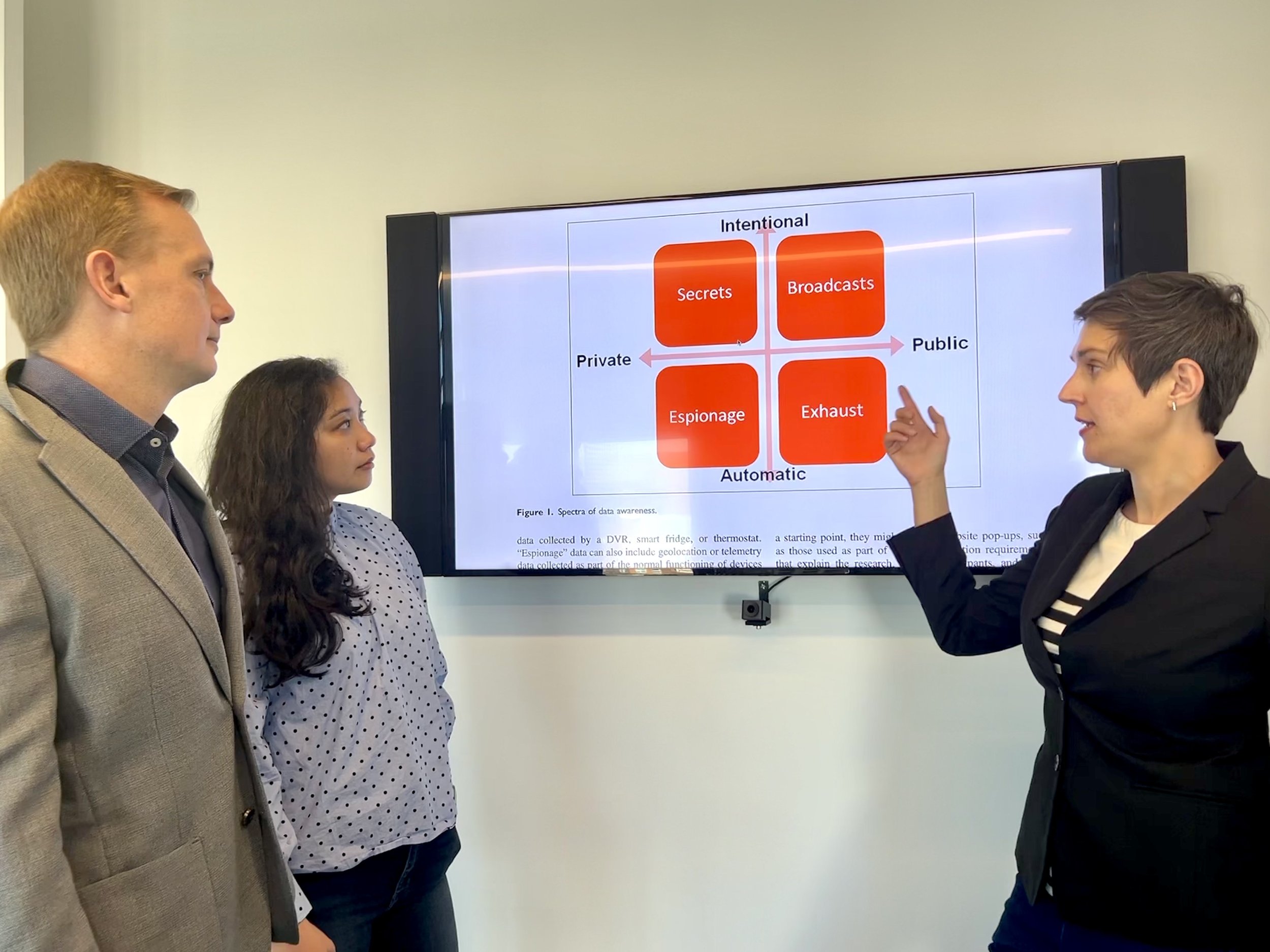
Furong Huang
Associate Professor of Computer Science
University of Maryland
Area of Expertise: Trustworthy Machine Learning
Furong Huang is an associate professor of computer science at the University of Maryland. Specializing in trustworthy machine learning, AI for sequential decision-making, and high-dimensional statistics, she focuses on applying theoretical principles to solve practical challenges in contemporary computing. Huang’s research centers on creating reliable and interpretable machine learning models that operate effectively in real-world settings.
-
An, B., Ding, M., Rabbani, T., Agrawal, A., Xu, Y., Deng, C., Zhu, S., Mohamed, A., Wen, Y., Goldstein, T., & Huang, F. (n.d.). Proceedings of the 41st International Conference on Machine Learning (ICML), 2024. (arXiv:2401.08573).
Abstract: This paper investigates the weaknesses of image watermarking techniques. We present WAVES (Watermark Analysis Via Enhanced Stress-testing), a novel benchmark for assessing watermark robustness, overcoming the limitations of current evaluation methods.WAVES integrates detection and identification tasks, and establishes a standardized evaluation protocol comprised of a diverse range of stress tests. The attacks in WAVES range from traditional image distortions to advanced and novel variations of diffusive, and adversarial attacks. Our evaluation examines two pivotal dimensions: the degree of image quality degradation and the efficacy of watermark detection after attacks. We develop a series of Performance vs. Quality 2D plots, varying over several prominent image similarity metrics, which are then aggregated in a heuristically novel manner to paint an overall picture of watermark robustness and attack potency. Our comprehensive evaluation reveals previously undetected vulnerabilities of several modern watermarking algorithms. We envision WAVES as a toolkit for the future development of robust watermarking systems. The project is available at https://wavesbench.github.io/
-
Chakraborty, S., Bedi, A. S., Zhu, S., An, B., Manocha, D., & Huang, F. (2023). Proceedings of the 41st International Conference on Machine Learning (ICML), 2024. (arXiv:2304.04736).
Abstract: Our work addresses the critical issue of distinguishing text generated by Large Language Models (LLMs) from human-produced text, a task essential for numerous applications. Despite ongoing debate about the feasibility of such differentiation, we present evidence supporting its consistent achievability, except when human and machine text distributions are indistinguishable across their entire support. Drawing from information theory, we argue that as machine-generated text approximates human-like quality, the sample size needed for detection increases. We establish precise sample complexity bounds for detecting AI-generated text, laying groundwork for future research aimed at developing advanced, multi-sample detectors. Our empirical evaluations across multiple datasets (Xsum, Squad, IMDb, and Kaggle FakeNews) confirm the viability of enhanced detection methods. We test various state-of-the-art text generators, including GPT-2, GPT-3.5-Turbo, Llama, Llama-2-13B-Chat-HF, and Llama-2-70B-Chat-HF, against detectors, including oBERTa-Large/Base-Detector, GPTZero. Our findings align with OpenAI's empirical data related to sequence length, marking the first theoretical substantiation for these observations.
-
Xu, Y., Yao, J., Shu, M., Sun, Y., Wu, Z., Yu, N., Goldstein, T., & Huang, F. (2024). (arXiv:2402.06659).
Abstract: Vision-Language Models (VLMs) excel in generating textual responses from visual inputs, yet their versatility raises significant security concerns. This study takes the first step in exposing VLMs' susceptibility to data poisoning attacks that can manipulate responses to innocuous, everyday prompts. We introduce Shadowcast, a stealthy data poisoning attack method where poison samples are visually indistinguishable from benign images with matching texts. Shadowcast demonstrates effectiveness in two attack types. The first is Label Attack, tricking VLMs into misidentifying class labels, such as confusing Donald Trump for Joe Biden. The second is Persuasion Attack, which leverages VLMs' text generation capabilities to craft narratives, such as portraying junk food as health food, through persuasive and seemingly rational descriptions. We show that Shadowcast are highly effective in achieving attacker's intentions using as few as 50 poison samples. Moreover, these poison samples remain effective across various prompts and are transferable across different VLM architectures in the black-box setting. This work reveals how poisoned VLMs can generate convincing yet deceptive misinformation and underscores the importance of data quality for responsible deployments of VLMs. Our code is available at: https://github.com/umd-huang-lab/VLM-Poisoning.
-
Zheng, R., Liang, Y., Wang, X., Ma, S., Daumé III, H., Xu, H., Langford, J., Palanisamy, P., Basu, K. S., & Huang, F. (2024). Proceedings of the 41st International Conference on Machine Learning (ICML), 2024. (arXiv:2402.06187).
Abstract: We present Premier-TACO, a multitask feature representation learning approach designed to improve few-shot policy learning efficiency in sequential decision-making tasks. Premier-TACO leverages a subset of multitask offline datasets for pretraining a general feature representation, which captures critical environmental dynamics and is fine-tuned using minimal expert demonstrations. It advances the temporal action contrastive learning (TACO) objective, known for state-of-the-art results in visual control tasks, by incorporating a novel negative example sampling strategy. This strategy is crucial in significantly boosting TACO’s computational efficiency, making large-scale multitask offline pretraining feasible. Our extensive empirical evaluation in a diverse set of continuous control benchmarks including Deepmind Control Suite, MetaWorld, and LIBERO demonstrate Premier-TACO’s effectiveness in pretraining visual representations, significantly enhancing few-shot imitation learning of novel tasks. Our code, pretraining data, as well as pretrained model checkpoints will be released at https://github.com/PremierTACO/premier-taco.















